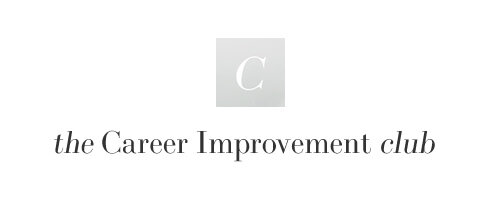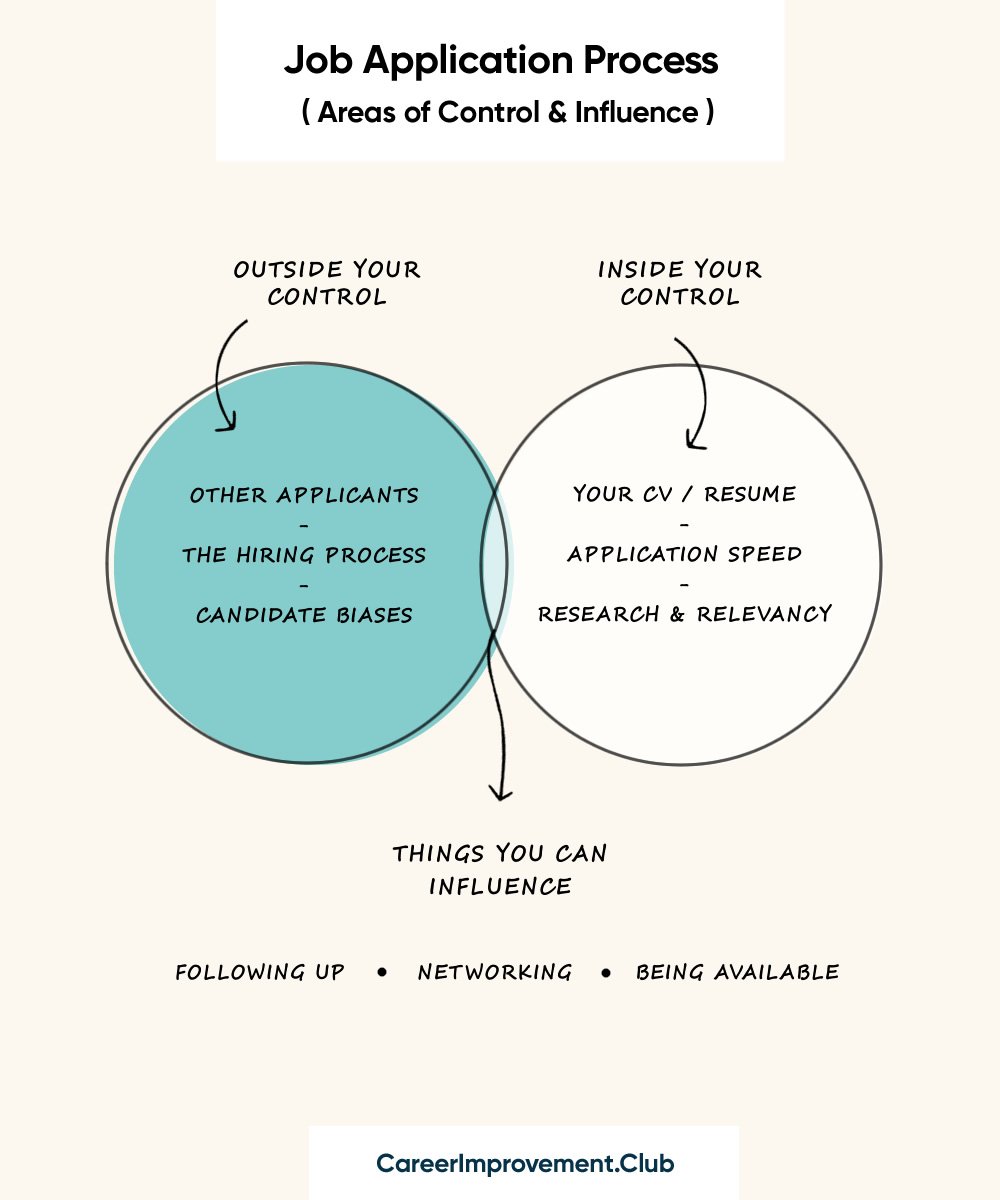For many job seekers, what starts out as an exciting and motivated search for something new can quickly become a long, drawn-out affair filled with rejection and uncertainty.
Despite sending out what can seem like hundreds, (and in some cases is literally hundreds), of job applications, it's not uncommon to hear nothing back in return. This can take a toll on a person's motivation and self-confidence, leading them to feel like a shadow both in the realms of the job boards and of their former selves.
For those in the thick of it, it’s difficult to keep a modicum of sanity as each day passes without even as much as some constructive criticism (hiring managers and recruiters are always too busy, right?).
But, don’t worry…
It’s a more common experience than you might think (not that it makes it any less demoralising). In this article we'll explore the reasons why you’re not hearing back from your job applications, why it's an important issue that needs to be addressed, and provide you with some actionable strategies for coping with the waiting game.
No responses from job applications – No problems, let’s solve that…
WHAT’S IN
The frustrations of not getting a response (and why it matters).
The main reasons you’re not getting a response.
Focus only on the things you can control.
How to increase responses to job applications.
Strategies for coping with the wait (whilst making progress)
Final thoughts.
1. The frustration of not getting a response (and why it matters)
What started out with so much promise has turned from into a daily slog, a battle of attrition where staying positive amidst all the ghosted job applications, rejections and fruitless searching is tough.
It's like a knife in the gut. You've put in the time, the effort, and the heart, and you're getting nothing in return. It's like you're invisible, like your voice doesn't matter. And it's hard not to take it personally.
“The waiting game can take a toll on your mental health and motivation”.
The first step is to acknowledge and validate these feelings. It's normal to feel disappointed and frustrated when you don't hear back from job applications, and it's okay to take some time to process those emotions.
But it's also important to remember that the frustration of not getting a response is not necessarily just about you. It's also about the system and the way things are done.
Process and park your frustration. Keep your head up, keep your heart open, and keep trying. Because eventually, the right door will open for you.
WHY IT MATTERS
It's important to address the issue of not hearing back from job applications because without understanding the core reasons it's difficult to know what actions to take to improve your job search outcomes.
Failure to get to grips with the problem will amplify it and risk escalating it further as demonstrated in the following compound rejection cycle diagram…
By conducting a little research into what's going wrong, you can identify and address any potential weaknesses in your job search strategies.
Understanding what’s going on will empower you, boosting results, and enhancing your overall confidence, in essence you’ll create the opposite effect of the previous diagram, as seen in the compound success cycle…
2. The main reasons you’re not getting a response
THE POSITION HAS ALREADY BEEN FILLED
One of the most common reasons why job seekers don't hear back from employers is that the position has already been filled. Sometimes employers forget to close job postings or fail to update candidates when the position is filled. If you don't hear back from an employer after a few weeks, it's a good idea to assume that the position has been filled and to cross this one off your list and move on to other opportunities.
YOUR JOB APPLICATION DIDN’T MATCH THE REQUIREMENTS
Another common reason why employers don't respond to job applicants is that their application simply doesn't match the requirements for the position. Employers often receive large numbers of applications, typically shortlisting just the top 8% for interview. Making the cut can be tough, therefore if your resume didn’t demonstrate the majority of the skills, experience and education required it’s unlikely you’ll hear back from the employer.
THE COMPANY HAS CHANGED ITS HIRING PLANS
Companies may change their hiring plans for a variety of reasons. They may decide to delay hiring, restructure the position, or cancel the opening altogether. In some cases, they may not have the budget to fill the position. If you don't hear back from an employer after a few weeks, it's possible that the company has changed its hiring plans.
THE HIRING PROCESS IS TAKING LONGER THAN EXPECTED
The hiring process can be a lengthy one, and sometimes employers don't have the time or resources to keep all candidates updated on their progress.
Hiring Managers may have to offer the position to internal applicants first, they equally might be on annual leave or could have suffered from an unexpected illness. All these and more can contribute to a delay in the hiring process.
THE EMPLOYER IS OVERWHELMED WITH APPLICANTS
Employers can receive hundreds or even thousands of applications for a single position, making it challenging to manage the basic process (let alone provide any feedback or response).
3. Focus on what you can control
There are parts of the job application process that you can control, some you can influence and others which are totally out of your control.
For example, you have control over the quality of your resume and cover letter, your online presence, and the specific jobs you apply for. You can influence the hiring manager's decision-making process by following up effectively after submitting your application, networking with individuals who work at the company, and tailoring your application to the job description.
However, there are certain aspects of the job application process that are entirely out of your control. For instance, you cannot control the number of applications the company receives, the preferences of the hiring manager, or the internal dynamics of the company's hiring process. Similarly, you cannot control any biases or prejudices that the hiring manager may have.
Focusing on the parts of the process that you can control or influence can help you to feel empowered and confident in your job search, while recognising the parts that are out of your control can help you to avoid feeling overly discouraged or defeated if things don't go as planned.
TAKE INSPIRATION FROM THE STOICS
Avoid worrying about things you can't control. The idea of not worrying about things outside of your control is rooted in Stoic philosophy, which originated in ancient Greece and was further developed by Roman philosophers like Seneca, Epicurious, and Marcus Aurelius. The Stoics believed that individuals should focus on what is within their control, such as their own thoughts and actions, and not worry too much about external events or circumstances that are beyond their control. This way of thinking lends itself to various aspects of modern day life, including job seeking.
Only concern yourself with the things you can control or influence.
4. How to increase responses to job applications
After understanding the common reasons why you might not receive a response from employers, you now need to do everything within your influence and control to improve your chances of getting a response.
Here are some actionable strategies for making your job application stand out and increasing the likelihood that you'll hear back from potential employers.
TAILOR YOUR COVER LETTER AND RESUME
One of the most effective ways to improve your chances of getting a response from employers is to customise your cover letter and resume for each job application. This shows that you've taken the time to research the company and understand the requirements of the position. Make sure to highlight your relevant skills and experience and explain how they align with the needs of the job. CV Mirroring is a great trick for tailoring your resume for maximum effect.
NETWORK AND MAKE CONNECTIONS
Networking is an essential part of any job search. Building relationships with people in your industry can help you learn about job opportunities and get your foot in the door at companies you're interested in. If you can consider attending industry events as these are a hot bed for job opportunities, many of the bigger employers or industry recruiters often feature career stands. Alternatively sign up for virtual conferences and use LinkedIn to network with industry folk.
FOLLOW UP STRATEGICALLY
Following up with potential employers can help you stay top of mind and increase your chances of getting a response. However, it's important to follow up strategically. Avoid bombarding employers with emails or phone calls. Instead, send a polite follow-up email after a week or two to check on the status of your application. How to follow up your job application.
OPTIMISE YOUR ONLINE PRESENCE
In today's digital age, your online presence can be just as important as your resume. Make sure your social media profiles are professional and up-to-date. Use your LinkedIn profile to showcase your skills and experience, and connect with people in your industry. You never know when a potential employer might come across your profile. Use these LinkedIn Profile Tips for best effect.
CONSIDER TEMP OR FREELANCE WORK
Temp or freelance work can be a great way to get your foot in the door at a company and demonstrate your skills. These types of positions can lead to full-time opportunities and give you the chance to build relationships with potential employers.
5. Strategies for coping with the wait (whilst making progress)
Job hunting is a marathon, not a sprint, so whilst you wait for your improvements and persistence to pay off implement these strategies to cope with the waiting game.
STAY ORGANISED: Keep a spreadsheet or document of all the jobs you've applied to, along with the date you applied and any follow-up actions you've taken. This can help you keep track of where you stand with each application and stay on top of any deadlines or important dates.
STAY POSITIVE: It's important to maintain a positive attitude during the job search process. Surround yourself with supportive people who can offer encouragement and feedback. Celebrate small wins, like getting an interview or receiving positive feedback on your application.
STAY BUSY: Don't put all your eggs in one basket. While you're waiting to hear back from one job, continue to apply to others and work on improving your skills and qualifications. This can help you feel productive and proactive, rather than just waiting around for a response. Sharing your experience with others can also be a very cathartic and collaborative method of coping and remaining motivated.
TAKE CARE OF YOURSELF: Finally, remember to take care of your mental and emotional well-being during the job search process. Practice self-care activities like exercise, meditation, or spending time with loved ones. Don't hesitate to seek professional help if you're feeling overwhelmed or anxious.
6. Final no response thoughts…
So there you have it, hopefully you'll feel a little more confident about your future applications and a little less worried about the radio silence you may have experienced to date.
Waiting for responses can be frustrating, however if you remain organised and continue to apply for jobs in the right way with a carefully targeted resume results will come, boosting your self esteem and motivation in the process.
Good luck!









